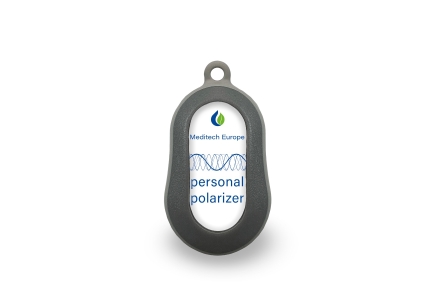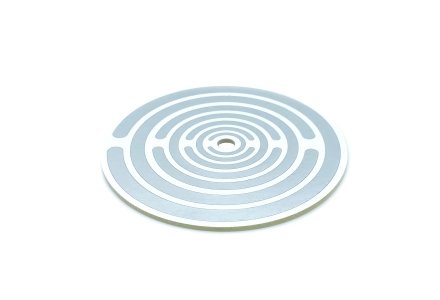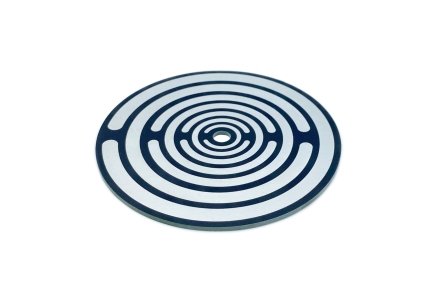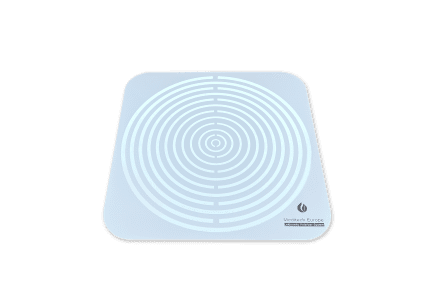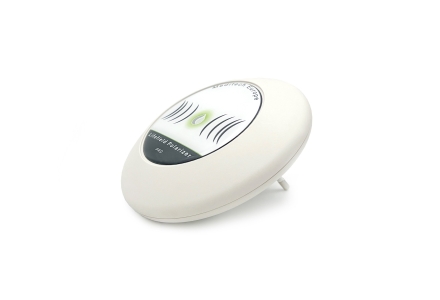
In our quest to manage stress, there are several approaches that can help us. One of the basic ones that is sometimes overlooked is making sure we get enough quality sleep. This blog explores the importance of sleep for stress reduction. We also share practical tips for improving sleep quality. In addition, we also introduce you to Meditech Europe, which is pleased to offer advice, support and possible solutions in the field of sleep and stress.
What exactly is sleep?
Sleep is a natural, periodic state of physiological rest in which awareness of the environment is largely diminished, muscles are relaxed and there is a change in brain activity and consciousness. During sleep, we undergo several sleep stages during which essential processes occur that contribute to physical recovery, memory consolidation, emotional processing and general well-being.
Sleep is further characterized by subjective characteristics (good, bad, deep, shallow) and the amount of hours of sleep per 24 hours. During a typical sleep cycle, we go through several sleep phases. These phases are often divided into two main categories: non-rem sleep (NREM) and brake sleep (REM).
Sleep is an essential part of our daily lives and has several important functions for our health and well-being, which we list below:
Physical recovery: During sleep, we restore and renew our physical energy. Our body repairs muscles, tissues and cells that have been damaged during the day. Sleep also plays a role in the immune system by strengthening our defenses against disease.
Cognitive functions: Sleep is crucial to the functioning of our brain. It helps consolidate memories and process new information. Sufficient sleep is essential for good concentration, attention, problem-solving skills and creativity.
Emotional well-being: Sleep affects our emotional state and regulates our mood. A lack of sleep can lead to irritability, mood swings and increased feelings of stress, anxiety or depression.
Hormonal balance: During sleep, important hormones such as cortisol (a stress hormone) and growth hormone are regulated. Good sleep promotes a healthy hormonal balance, while sleep deprivation can lead to disruptions in these processes.
Overall well-being: Sleep is essential to our overall well-being and quality of life. A regular sleep pattern contributes to improved physical health, mental resilience, productivity and longevity.
In general, adults need between 7 and 9 hours of sleep per night for optimal health and functioning. Children and adolescents generally need more sleep because of their growth and development.
In short, sleep is critical to our health and also plays an important role in managing stress.
Stress: a problem of our times?
Stress is defined as a response by the body to a situation that is perceived as threatening, challenging or overwhelming. It is a natural physiological response that occurs when the body is confronted with an external stimulus, also called a stressor. This stressor can be of various kinds, such as physical, mental, emotional or social stressors.
The stress response includes both physical and psychological components. Physically, stress can lead to increased heart rate, accelerated breathing, muscle tension and changes in hormone levels, such as the release of adrenaline and cortisol. Psychologically, stress can lead to feelings of tension, anxiety, irritability, difficulty concentrating and difficulty sleeping.
It is important to note that not all stress is necessarily negative. Some degree of stress, such as challenges at work or exciting events, can be motivating and help us perform under pressure. This is often referred to as "healthy" or "positive" stress (eustress).
However, prolonged exposure to intense stress or sustained stress without adequate recovery can be detrimental to health and lead to negative consequences for both physical and mental well-being. This is often referred to as "unhealthy" or "negative" stress (distress).
Unfortunately, stress is a common problem in modern society and is often considered one of the most important health issues of our time. Reasons involved include lifestyle and work patterns, information overload, social pressure to conform to the norm and financial concerns.
The interaction between sleep and stress
In practice, there is a complex and dual interaction between sleep and stress. On the one hand, stress can lead to sleep problems, while on the other hand, a lack of sleep can increase stress levels. Here are some important aspects of this interaction:
Stress and sleep problems: Stress can lead to sleep problems such as insomnia, difficulty falling asleep, restless sleeping and waking up early. This is because stress increases the activity of the sympathetic nervous system, leading to increased alertness and difficulty relaxing before bedtime.
Quality of sleep: A lack of good quality sleep can in turn amplify the stress response in the body. When we do not get enough rest, we are less resilient to stressful situations and can become emotionally and physically exhausted, which can further increase stress levels.
Recovery and regulation: Sleep plays a crucial role in the body's recovery and regulation of stress hormones such as cortisol. Sufficient sleep helps reduce cortisol levels, while sleep deprivation can lead to hormonal imbalances that can exacerbate stress.
Cognitive functions and stress management: Good sleep is essential for optimal cognitive function, including our ability to manage stress and deal effectively with challenges. A rested brain is better able to regulate emotions, think clearly and solve problems.
Practical tips for improving sleep quality
To break the negative interaction between sleep and stress, it is first of all important to get a good night's sleep. Then, over time, you will notice that the amount of stress you experience will also start to decrease as a result. Of course, you should also investigate the causes that cause you to experience stress and work on possible solutions to reduce stress. You can read more about this in the blog How to Tackle Stress: Immediate Relief Strategies.
Below we provide some solutions to improve sleep and thus reduce stress:
Promote sleep hygiene:
Create a restful sleep environment with a comfortable mattress and pillows, blackout curtains and a comfortable room temperature.
Limit exposure to electronic devices such as smartphones, tablets and computers just before bedtime, as the blue light can disrupt sleep.
Maintain a regular sleep schedule by going to bed and getting up at the same time every day, even on weekends.
Limit caffeine and alcohol in the evenings, as these substances can disrupt sleep.
Exercise and healthy eating:
Regular exercise can not only help improve sleep quality, but also reduce stress. Try to get at least 30 minutes of moderate exercise daily.
Eat a balanced diet with plenty of vegetables, fruits, whole grains, lean proteins and healthy fats. Avoid excessive consumption of sugar, caffeine and processed foods.
Improve sleep habits:
Create an evening routine that is relaxing, such as reading a book, taking a warm bath or listening to soothing music.
Avoid using smartphones and other screens immediately before bedtime, as the blue light can interfere with the production of melatonin, the sleep hormone.
Consider using aromatherapy or other natural sleep aids and nutritional supplements that can help promote a peaceful sleep environment. Or try technological solutions such as binaural beats or white noise machines, for example. From all these options, choose the one that suits you best.
Which products can support good sleep
Meditech Europe offers many products that can contribute to harmony and balance in order to optimize the living environment, including the bedroom. Examples include:
Meditech Europe also has various nutritional supplements for sale that can support good sleep. Look for these on our website here.
Conclusion
A good night's sleep is vital when it comes to reducing stress and promoting healthy mental and physical balance. By getting enough sleep, we can regulate the production of stress hormones, strengthen our emotional resilience and manage our overall stress levels. It is therefore essential to make sleep a priority and cultivate healthy sleep habits to reduce stress and lead a more balanced and fulfilled life.
When integrating good sleep habits into your daily routine, there are products from Meditech Europe that can support you in this. Meditech Europe is ready to advise you on these products and on the importance of a good night's sleep. For more information and questions, please contact us at info@meditecheurope.nl or +31527 292 331.
FAQ
What is the purpose of sleep?
The purpose of sleep is to restore, regenerate and revitalize the body and mind. It contributes to physical recovery, memory consolidation, emotional processing and hormonal balance, which is essential for good health, well-being and daytime functioning.
How does sleep help manage stress?
Sleep helps manage stress by reducing the production of stress hormones such as cortisol, improving emotional regulation and promoting mental resilience, making us better able to handle and cope with stressful situations.
